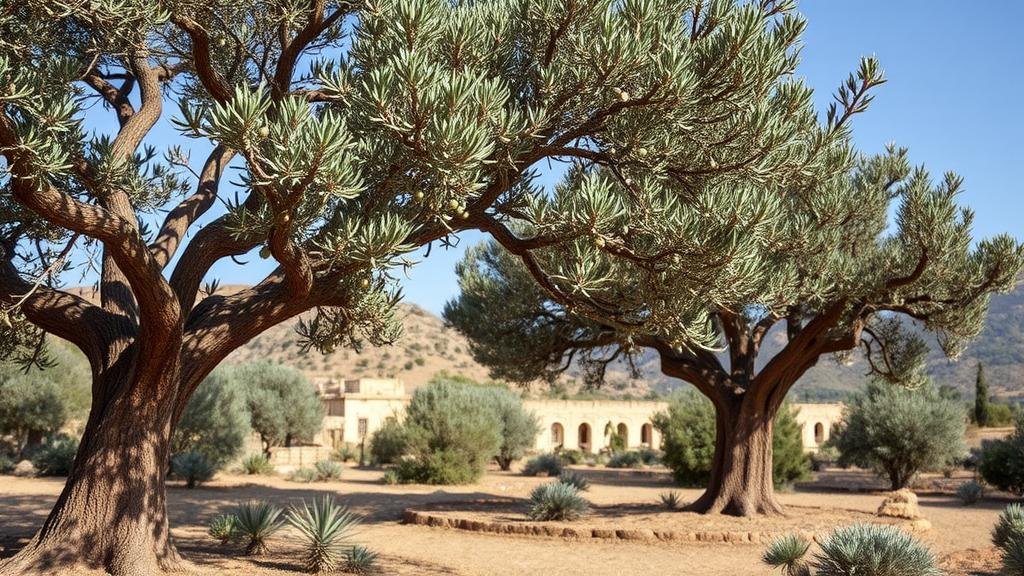Investigating the ancient olive trees of the Mediterranean region.
Investigating the Ancient Olive Trees of the Mediterranean Region
The Mediterranean region, with its unique climate and rich history, is home to some of the oldest olive trees in the world. These majestic trees not only symbolize peace and prosperity but also serve as a vital agricultural resource. This article delves into the significance, history, and current research surrounding these ancient olive trees.
The Historical Significance of Olive Trees
Olive trees (Olea europaea) have been cultivated for over 6,000 years, particularly in the Mediterranean basin. e trees were celebrated in ancient civilizations, functioning as a critical part of various cultures.
- In Ancient Greece, olive oil was a staple of the diet and played a central role in religious ceremonies. The olive tree was deemed a gift from Athena, the goddess of wisdom.
- During the Roman Empire, olives were a vital trade commodity, and their oil was used not only for cooking but also for therapeutic purposes.
- In the Mediterranean, the landscape is often characterized by terraced olive groves, particularly in regions like Tuscany, Italy, and Andalusia, Spain.
Notable Ancient Olive Trees
Some of the most fascinating ancient olive trees can be found scattered throughout the Mediterranean. Their age and size are awe-inspiring, and many have become tourist attractions.
- The Olive tree of Vouves in Crete, Greece, is estimated to be over 2,000 years old. It is still productive and symbolizes resilience and longevity.
- The ancient olive grove of Al-contar in Italy includes trees that are believed to be more than 1,000 years old, showcasing the traditional methods of olive cultivation.
- The olive trees in the town of Brolio, Tuscany, some of which are thought to date back to the 13th century, contribute to the region’s robust wine and olive oil production.
Ecological and Economic Importance
Beyond their historical allure, ancient olive trees play a crucial role in the Mediterranean ecosystem and economy. The olives produced from these trees are integral to local agriculture.
- Olive oil production represents one of the most significant agricultural industries in countries like Spain, Italy, and Greece, with Spain being the largest producer, responsible for over 40% of the worlds olive oil.
- An estimated 10% of the Mediterranean landscape is covered by olive groves, serving as a habitat for various species and contributing to biodiversity.
Contemporary Research and Conservation Efforts
Given the importance of ancient olive trees, researchers are examining them for both cultural heritage and environmental sustainability. Preservation initiatives are increasingly pertinent due to the impact of climate change and agricultural practices.
Recent studies have focused on:
- Genetic diversity: Research teams are analyzing the genetic profiles of ancient olive trees to understand their resilience to diseases and climate variability.
- Carbon sequestration: Olive trees are effective at storing carbon, and studies suggest that their preservation could contribute positively to mitigating climate change.
Challenges Facing Ancient Olive Trees
Despite their resilience, ancient olive trees face numerous challenges such as climate change, disease, and the encroachment of urban development. Xylella fastidiosa bacterium, for instance, has had devastating effects on olive groves, particularly in southern Italy.
Also, shifts in agricultural practices threaten their preservation. The trend toward monoculture farming can jeopardize biodiversity and the ancient cultivation techniques that have preserved these trees for centuries.
Actionable Takeaways
To appreciate and protect the ancient olive trees of the Mediterranean, consider the following actions:
- Support local agricultural practices that prioritize biodiversity and traditional cultivation methods.
- Stay informed about conservation efforts and participate in initiatives aimed at preserving these historical trees.
- When traveling to the Mediterranean, engage with local olive oil producers and participate in sustainable tourism practices to enjoy and promote the heritage of olive cultivation.
To wrap up, the ancient olive trees of the Mediterranean are more than just agricultural resources; they are living links to our past and symbols of resilience. Understanding their significance can foster greater appreciation and drive more effective conservation efforts in the face of contemporary challenges.


